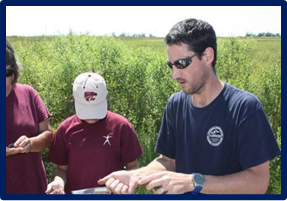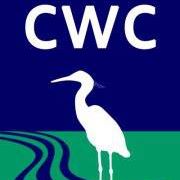 Q1. What is your educational background?
Q1. What is your educational background?
I got a B.S. in Biology from Towson University; a M.S. in Environmental Science and Policy from Johns Hopkins University; and a Ph.D. in Environmental Science from Indiana University.
Q2. What inspired you to become a scientist?
I was a curious kid! I always wanted to know the “how” and “why” of everything. I couldn’t just accept that things happened; I had to understand them.
Q3. What is your role as a scientist for CWC?
I’m a post-doctoral researcher, which means I help design and conduct experiments, interpret and analyze the results, and ultimately get our work published. I also assist in training folks in the lab on how to collect samples in the field and then process them in the lab. We specifically work in the marshes, trying to figure out how the oil spill impacted how energy (carbon) and nutrients (nitrogen and phosphorus) are processes and/or retained in these valuable but sensitive systems.
Q4. Can you describe what you enjoy the most about conducting scientific research?
See my answer to question two! I really enjoy getting into the nitty-gritty of how wetlands function, how our actions (or inactions) influence these functions, and what we can do make sure these marshes are conserved. We rely on these marshes for more than is immediately apparent, and I take pride in trying to understand how we can be effective environmental stewards.
Q5. Can you summarize your oil spill research and describe any surprising findings you have come across?
These systems are more resilient than they seem. While there are still on-going effects from the oil, these wetlands have exhibited a strong resilience and recovery to a degree. We’re also finding that oil can have different types of effects depending on the vegetation and type of soil. The most interesting thing we’ve found is how much we still don’t know. Answering one question leads to several more, which is the basis of science.

